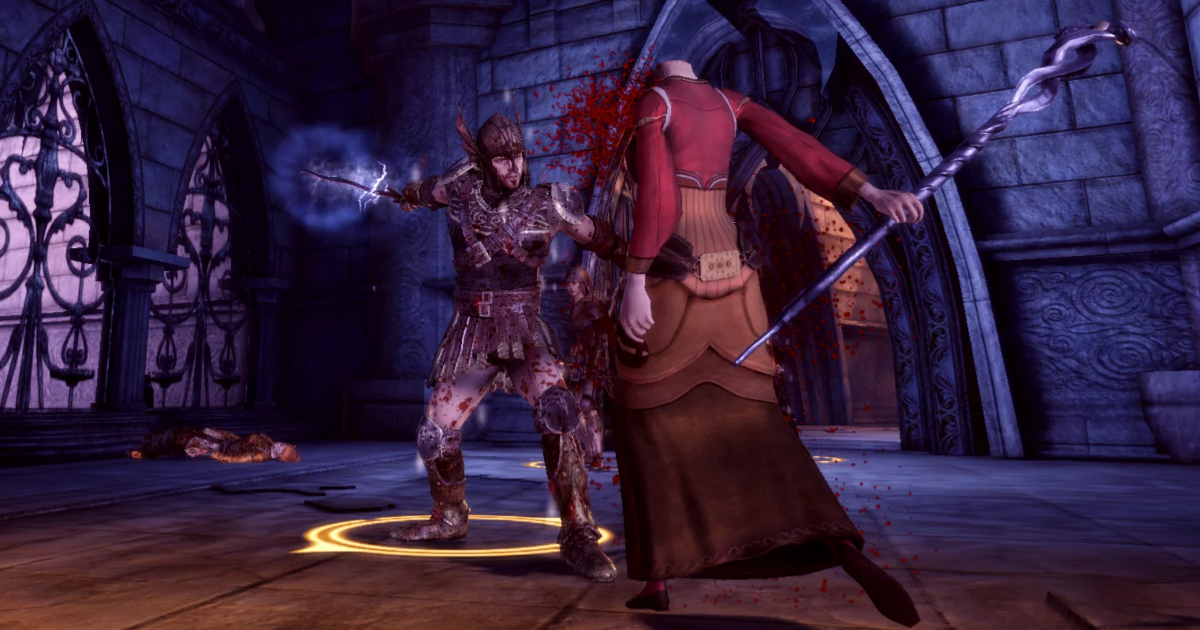Players often complain that games lack depth in terms of roleplaying an evil character. Former BioWare writer David Gaider has tried to explain the roots of this problem and what developers can actually do about it.

Dragon Age Origins (Screenshot by u/k1ln1k)
Gaider posted a thread on X (formerly Twitter) after quoting user @WorstGirlEva, who said that players choose a good path in games “because the bad side is often very badly written.”
As a writer himself, Gaider noted that this problem has more to do with developers’ “ability (or lack thereof) to flag intention” than poor writing.
This subject came up among the writers fairly often. “How can we make an ‘evil path’ which is actually satisfying?” The problem, more often than not, boiled down to our ability (or lack thereof) to flag *intention*. https://t.co/croIodmSUC
— David Gaider (@davidgaider) December 26, 2023
He noted that when choosing the evil route, people usually expect to manipulate others, gain some power, or see some visible consequences of their actions. The thing is that this can only be achieved through long-term goals, while in the short-term, some choices might be indistinguishable from playing a good character.
“So we’d need some way to flag any ‘evil path’ conversation option with some kind of note that says ‘yes, this might look like you’re agreeing, but your ultimate intention here is to do X,’ to set the stage for this clever evilness, as it were,” Gaider said, adding that this is “awkward.”
If writers fail to flag these long-term intentions, they can only offer players “evil” dialogue options with immediate consequences. But not many things that fall into this category. “An immediate deception, extortion, kick the puppy, etc. Not a lot else,” Gaider wrote.
Although the same problem exists with the “good” path, it is not that visible. The reason is that immediate good responses are the default, especially given that the main quest in most games is “essentially heroic.” So developers don’t have to flag why good actions fit the good playstyle.
“Why doesn’t that problem exist with the good path?”
It does, actually. The good responses are also immediate, but they’re the default – particularly when the overall framing of your main quest is essentially heroic. We don’t *need* to flag why good deeds aid your heroic quest.
— David Gaider (@davidgaider) December 26, 2023
Gaider believes that “possibly the problem is an inherent one” because the primary method of interacting with the player lies in dialogue options. So the problem can’t be solved just by writing “better” options for the evil playstyle. To do this, devs need to put much more effort into the evil path presented throughout the entire game. However, this could lead to another issue of trying to realize “which player impulses do we want to carter to, here?”
“Because, sure, you could allow things that are downright depraved, sadistic, etc. etc. But… do you WANT to make that game?” he noted.
According to Gaider, most players always take good options no matter how great the evil ones are. So evil paths are still “largely serving the good path” by design. Developers also can’t make evil options more rewarding, because “players likely have it so baked in that ‘do quest = get reward’ they’d lose their minds at that.”
Gaider said he would love to “see a game that overthrows this particular RPG paradigm,” but the whole problem is harder by design than it might seem at first. He added that inverting the paradigm won’t also help because it would simply “shift where the problem lies.”
I’d love to see a game that overthrows this particular RPG paradigm, but it’s a bit harder to design than it might at first appear… and my main fear is that you simply can’t overthrow it. You can only invert it, and shift where the problem lies.
Sorry for the long thread. 😅
— David Gaider (@davidgaider) December 26, 2023
David Gaider worked at BioWare for 17 years, between 1999 and 2016. His credits include games like Baldur’s Gate II, Star Wars: Knights of the Old Republic, and Neverwinter Nights, as well as the Dragon Age series (as the lead writer).
Gaider currently serves as creative director at Summerfall Studios, which he co-founded in 2018. The studio released its debut game, roleplaying musical Stray Gods, earlier this year.
